Gayle heads to Fife to experience Kinkell Byre’s newly launched nature conservation tours.
A brisk, wintry wind blows in off the North Sea, and I sincerely wish I’d worn a few more layers.
I’m at Kinkell, east of St Andrews on the Fife coast, and I’m about to join one of the newly launched wildlife conservation tours.
Running until March, they offer visitors the chance to learn about Kinkell’s rewilding project, and find out more about the history and geography of the transforming landscape.
They’re led by land manager Rory Fyfe, a man passionate about rewilding and sustainability, and who knows the area like the back of his hand, having moved to Kinkell with his parents aged 14.
Rewilding focus
The dad-of-three returned from working as an economist in Qatar three years ago to help run Kinkell Byre – the renowned family farm and wedding events business – and is now fully focused on rewilding the land.
Having stayed the night in one of Kinkell’s cosy new self-catering cabins, I’m up early to drink in the spectacular sea views.
It’s strange to imagine that in a few years – whether 10, 15 or 50 – this landscape will be very different.
Right now, it’s treeless and rather barren: there’s little evidence of wildlife, with the land having been intensively farmed for centuries.
But with trees, hedgerows, orchards and wildflower meadows being planted in abundance, with help from volunteers, it will soon brim and bustle with life.
Mission to fight back
Rory essentially sees his mission as being to help nature to “fight back”, and to try to reverse the damage inflicted.
“We’ve lost lots of plants and species thanks to intensive arable farming,” he muses.
“We want to get species like corn buntings, curlews, skylarks and meadow pipits, which are scarce, back.
“By giving nature space to do its own thing and let it recover, we can help reverse the loss of biodiversity, encouraging the return of native plants, insects, bees, birds and larger animals.
“Also, an increase in plant life will sequester carbon from the atmosphere, helping to combat climate change.”
Rewilding vision
While Kinkell, a small arable and livestock farm, branched out into the weddings and events business in 2003, it retained 70 acres of grass fields and 30 acres of cliffs, which are designated as a Site of Special Scientific Interest (SSSI).
The vision is to create a rewilded landscape, with free-roaming grazing animals across Kinkell Farm and within the wider neighbouring areas, including the SSSI.
It doesn’t take long to reach a series of newly created wetland areas, ponds and “scrapes” – shallow depressions with gently sloping edges which seasonally hold water.
The point of these, Rory explains, is they appeal to wildlife. They support a wide variety of species, from frogs and newts to dragonfly nymphs, aquatic snails and bats, and can offer feeding areas for wading birds and chicks.
Trees and hedgerows are big news here, too, and you can’t fail to notice thousands of newly-planted native hardwood species, many cloaked in environmentally-friendly guards to protect them from foraging animals.
Hairy Highland friends
A highlight is meeting Ginger and Coco, two gorgeous Highland cows. Rory heads into the field to feed them treats, and it’s fun to watch the hairy beasts get stuck in.
“These guys are great conservation grazers,” says Rory.
“They’re like natural mowers! They eat vegetation unpalatable to most cattle and can help improve habitat for butterflies and insects, and boost the diversity of wildflowers.”
The plan is to add Highland ponies and possibly pigs to the mix to diversify the grazing.
Rock and Spindle
Heading down to land at the bottom of the farm, which falls away to cliffs that make up part of the SSSI, we pause to enjoy one of the rugged coastline’s most panoramic views – of the Rock and Spindle, the remains of a volcanic vent system.
The impressive stack (the rock) has, at its base, a structure that resembles a spinning wheel, made from twisted basalt columns.
“It’s said William Wallace killed three Englishmen who’d taken refuge in the castle of Kinkell, which was a little inland from this rock,” Rory tells me.
Secret cave and beach
There’s an optional walk further along the coastline to a ‘secret’ beach and cave, which Rory promises is worth checking out.
Alas, I’ve still recovering from an ankle injury, and as this involves clambering on slippery rocks, I decide to leave this for another time.
Toastie time
The grand “finale” of the tour, and something which I’m most definitely NOT going to miss out on, is a trip along to St Andrews, reached either along the Fife Coastal Trail on foot, or, in my case, via Rory’s Land Rover, where he shares stories about the historic town – and then buys us toasties from the legendary Cheesy Toast Shack at East Sands. What a perfect – and delicious – end to our outing.
Solution to two problems
Ultimately, the message Rory wants to get across is that rewilding is a solution to two problems – to biodiversity loss and climate change.
And by doing his bit here at Kinkell, he hopes to inspire others to get on board with the rewilding movement.
“Hopefully in 10 or 15 years, the land will be teeming with wildlife,” he reflects.
“We’re just one small rewilding project but hopefully by showcasing what can be done we can encourage others to do the same.
“Ultimately it’s about reconnecting with nature.”
A stay in one of Kinkell’s new self-catering cabins was a real treat, writes Gayle Ritchie.
“I turned up early in the evening, just as darkness was falling, to be greeted by Rory and his cute wee Border Terrier, Buddy. It was easy to find my way down to the cabin, as the pathways were lit with solar lights. Inside was what can only be described as a cosy haven! With milk in the fridge, a giant loaf of bread, plus a fresh scone, garlic butter, pot of jam, and coffee, I had pretty much everything I needed for breakfast. I’d come armed with goods from a local shop so was able to whip up a small feast for dinner. I slept like a log in the comfy bed, the sound of waves crashing in the distance acting as the soundtrack to my dreams. I woke, fresh, and felt even fresher when I opened up the door and wandered down towards the sea. The views – outstanding! After scoffing down some brekkie, I was ready to meet Rory for my nature tour at 9.30am. And that was pretty special. The plan is to open an eco-education centre here soon, plus there’s talk of the launch of an ‘apple champagne’, so you can be sure I’ll be back again soon!”
- Kinkell’s conservation tours can be combined with overnight stays at the eco-friendly self-catering cabins. For information, to book, or to become a Rewilding Kinkell volunteer, see kinkellbyre.com
- The venue is hosting an open weekend on January 7 and 8, when couples planning to tie the knot here can explore options for a wedding in the ‘wild’.
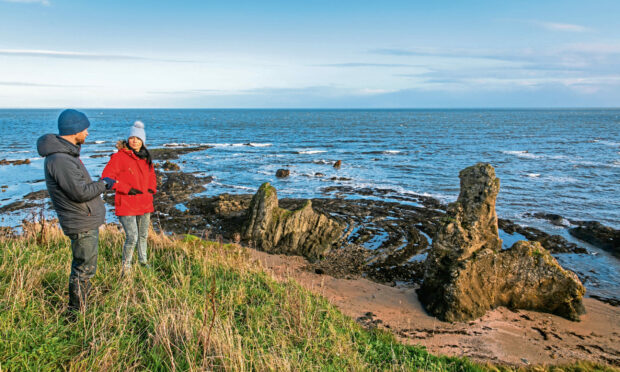
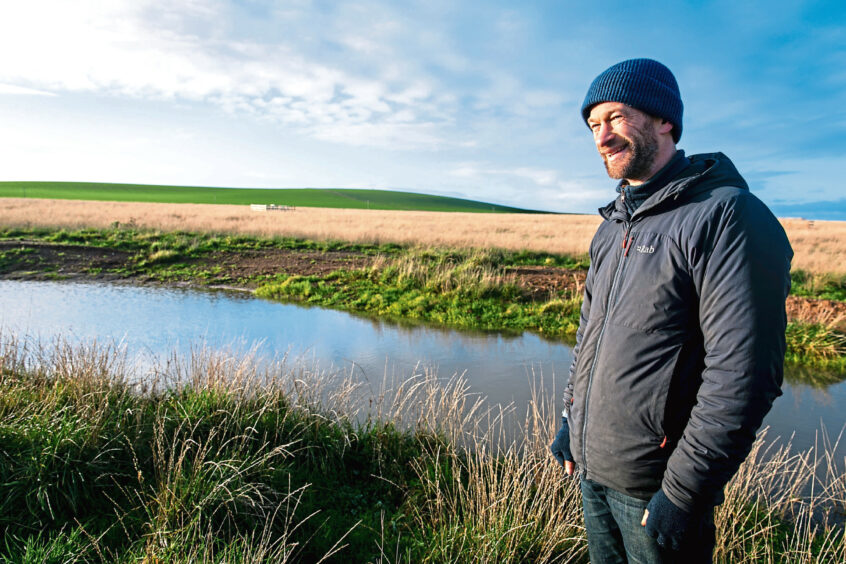
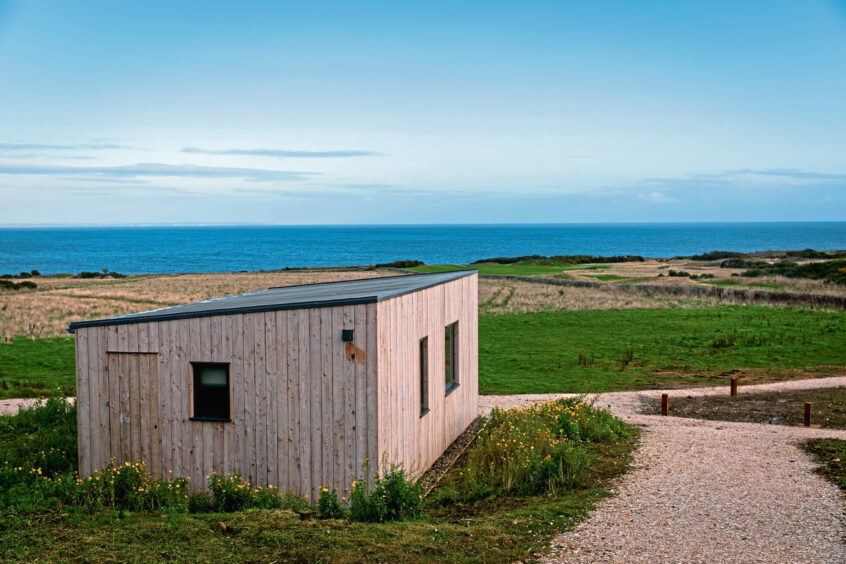
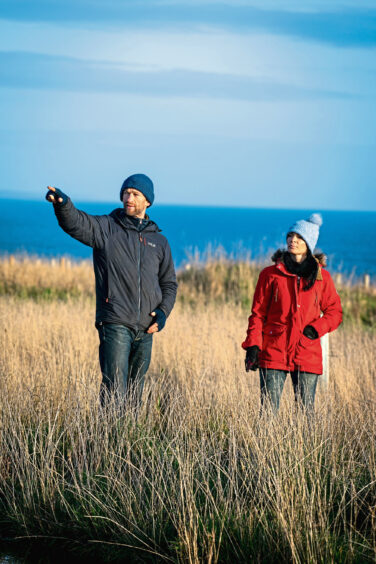
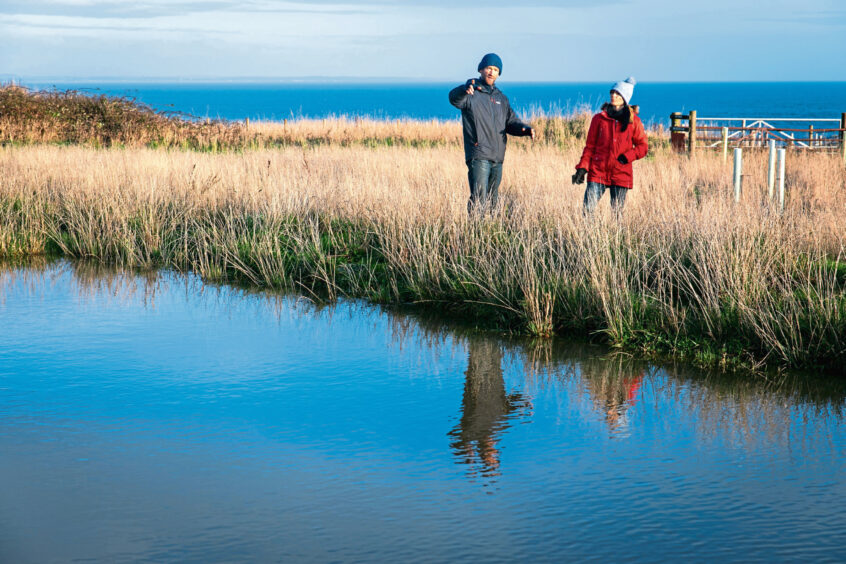
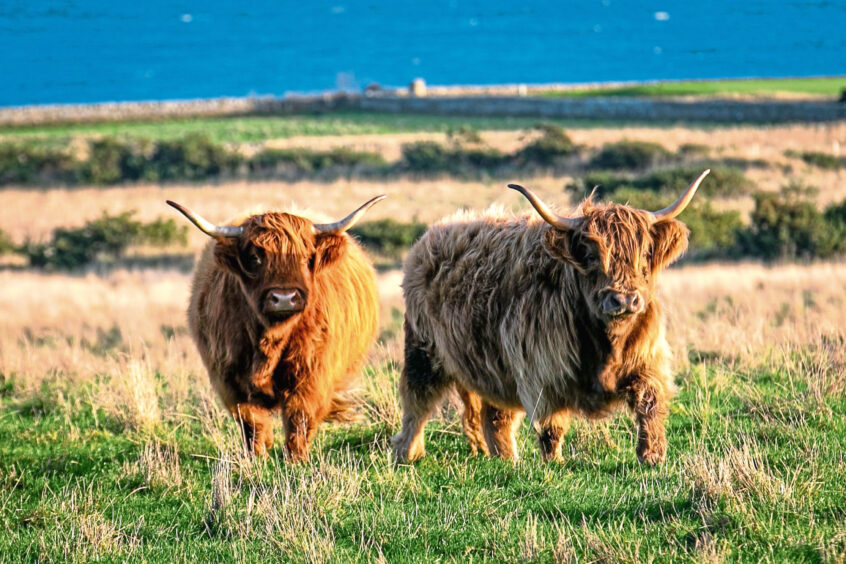
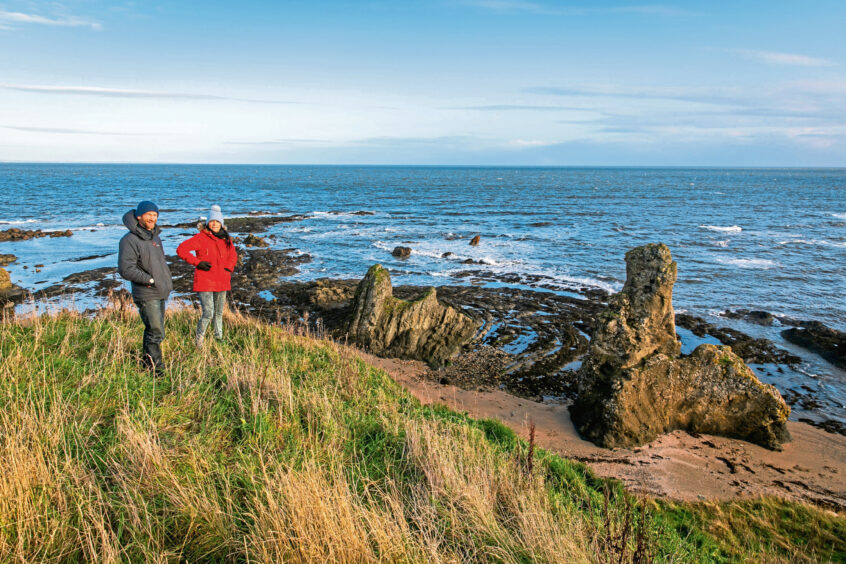
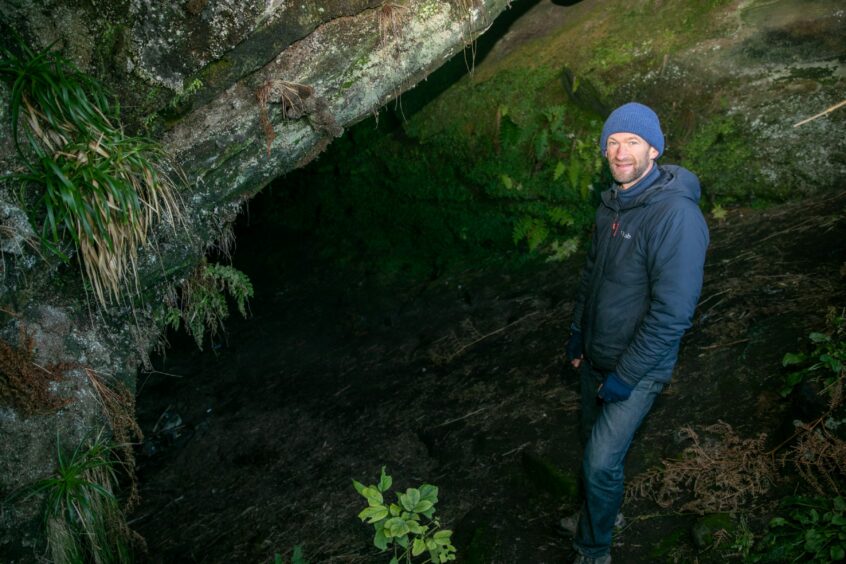
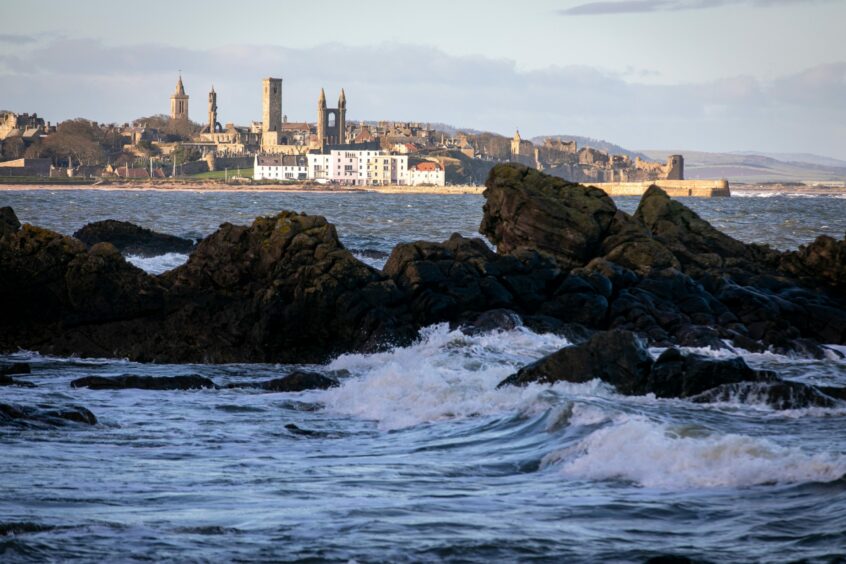
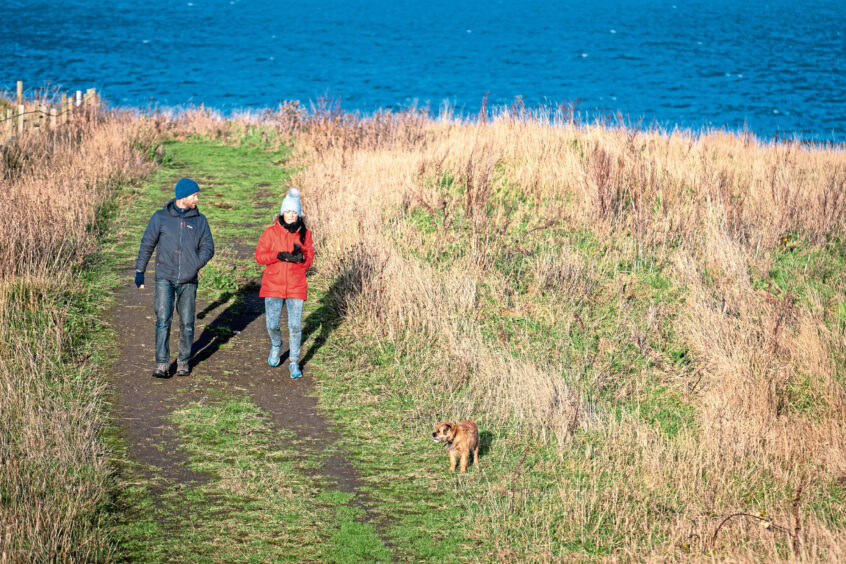

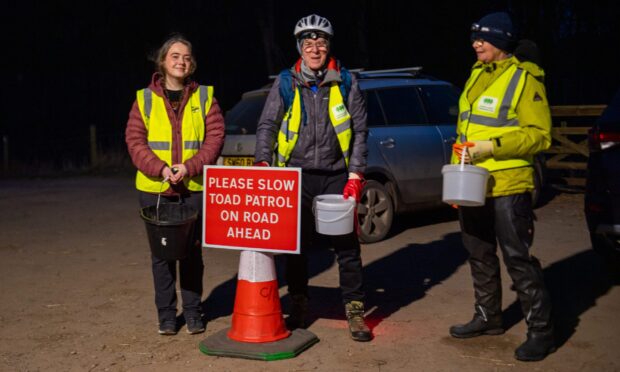
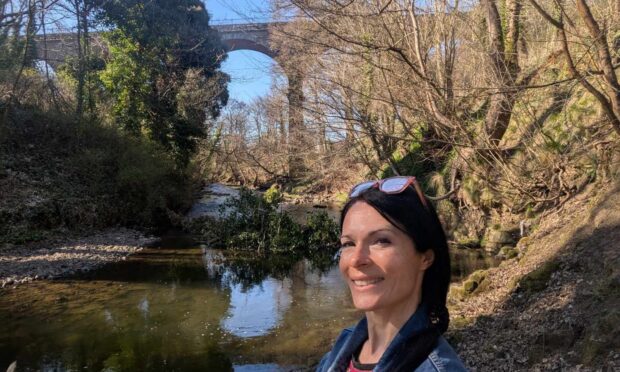
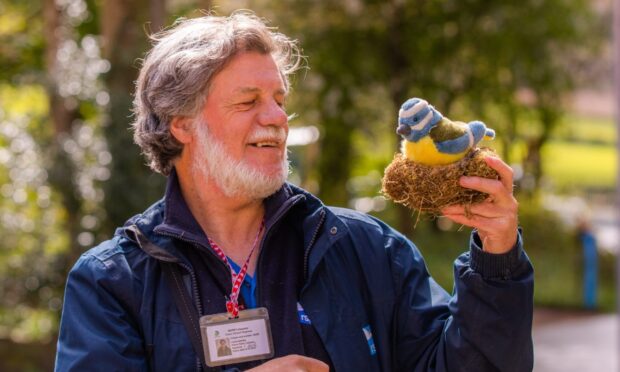
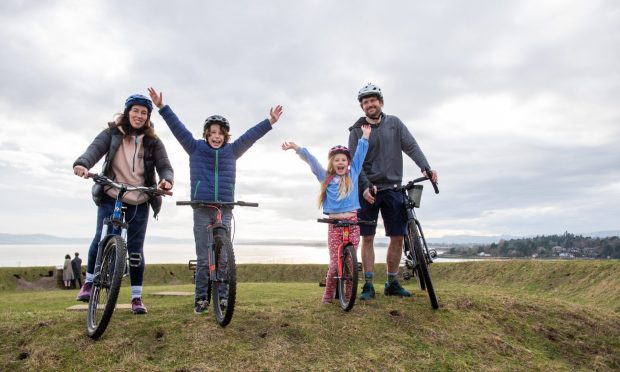
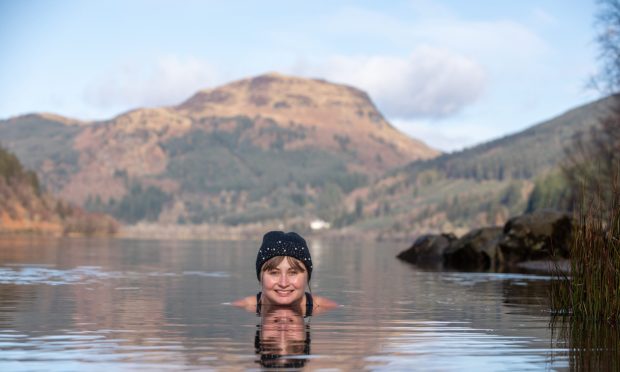
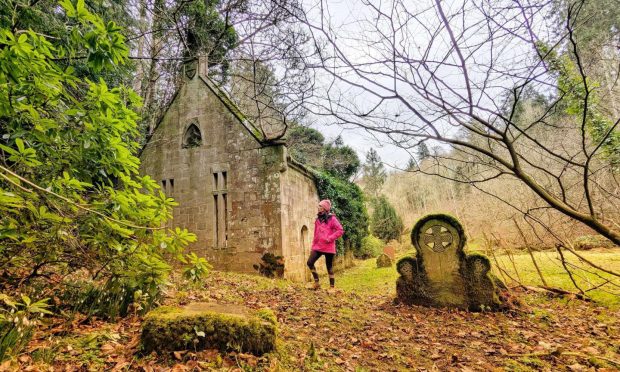
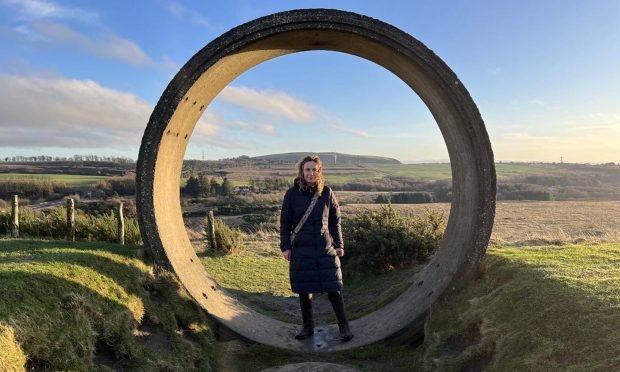
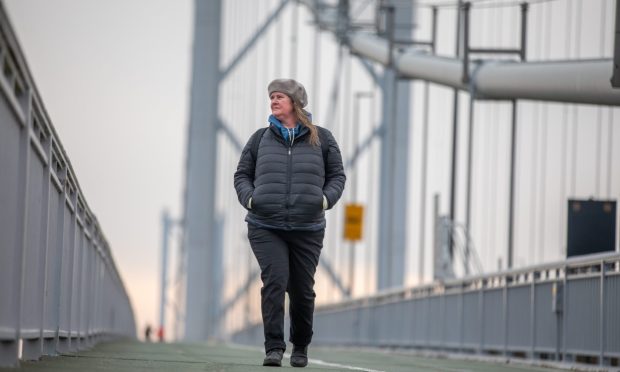
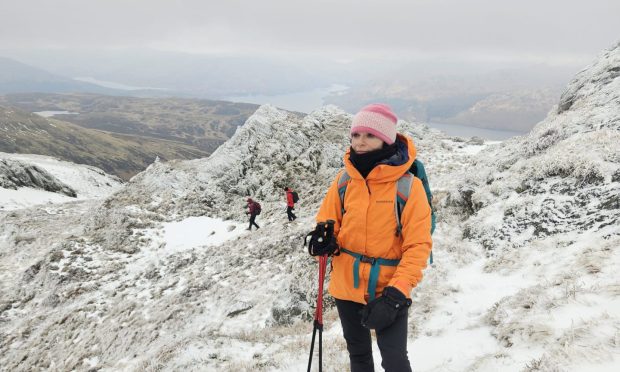
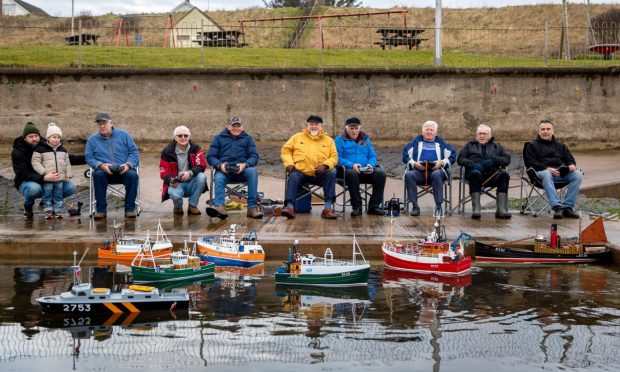
Conversation